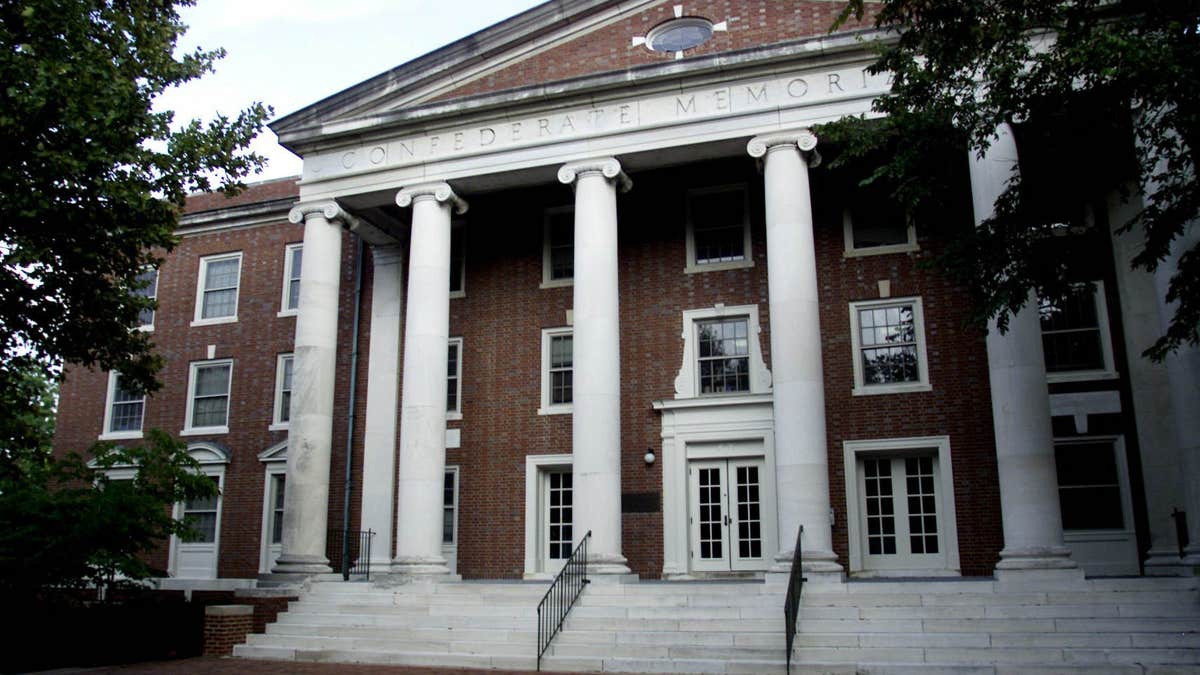
FILE - This Sept. 30, 2003, file photo, shows the exterior of a dormitory at Vanderbilt University in Nashville, Tenn., is inscribed with the name Confederate Memorial Hall. (AP Photo/The Tennessean, Ricky Rogers, File)
NASHVILLE, Tenn. – Vanderbilt University announced Monday that it will pay more than a million dollars to remove an inscription containing the word "Confederate" from one of its campus dorms.
The private university has referred to the Confederate Memorial Hall simply as "Memorial Hall" since 2002, but was blocked in court from changing the name chiseled on the building because it was constructed with the help of a $50,000 gift from the United Daughters of the Confederacy in 1933.
Under the agreement, Vanderbilt will pay $1.2 million, the equivalent of the gift made 83 years ago, to the organization's Tennessee chapter. In exchange, the chapter will relinquish its naming rights to the building.
"You can memorialize individuals without taking sides in the bloodiest war that was fought over the divisive issues of slavery and equality that we're still struggling with today for those young people coming onto campus," Vanderbilt Chancellor Nicholas Zeppos said in a phone interview.
The money has been pledged by anonymous donors, and Zeppos said the school chooses to focus on "moving Vanderbilt forward" rather than on what projects the Daughters of the Confederacy will spend the funds on, especially in light of a new Tennessee law that makes it more difficult to remove Confederate symbols and statues from public places.
"The donors and I and others understand that this donation will go to another organization, but this is a very positive step for Vanderbilt," Zeppos said.
The Daughters of the Confederacy did not immediately respond to an email seeking comment.
About 30 miles to the southeast, Middle Tennessee State University in Murfreesboro wants to remove the name of Confederate Gen. Nathan Bedford Forrest from one of its buildings. The public higher education system overseeing the school endorsed the change last month, but the proposal faces a tougher hurdle when it reaches the Tennessee Historical Commission.
Under the "Tennessee Heritage Protection Act" passed earlier this year, it now takes a vote of at least two-thirds of the commission to approve changing or removing historical markers. That's an increase from the previous requirement of a simple majority vote.
Calls to remove Confederate imagery from public places multiplied across the South after last year's slaying of nine black churchgoers in Charleston, South Carolina. A white man espousing racist views and who posed in a photo with a Confederate flag has been charged with murder in the killings.
Following the church shooting, Republican Gov. Bill Haslam said he supported removing the Capitol bust of Forrest, who is famous for his exploits as a Confederate cavalry general and amassed a fortune as a plantation owner and slave trader in Memphis before the Civil War.
After the defeat of the Confederacy, the newly formed Ku Klux Klan elected Forrest its honorary grand wizard, though he publicly denied being involved. Two years later, he ordered the Klan to disband because of its members' increasing violence.
The Forrest bust remains in the lobby between the House and Senate chambers at the state Capitol.




















